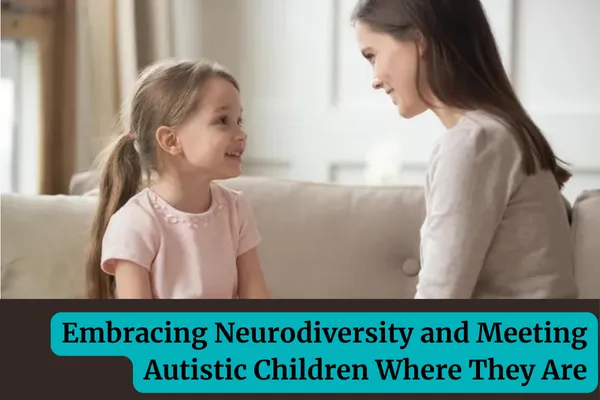
Embracing Neurodiversity and Meeting Autistic Children Where They Are
Embracing Neurodiversity and Meeting Autistic Children Where They Are
Understanding and support are key to parenting neurodivergent children. Every child's journey is unique, requiring personalized approaches that honor their individual strengths and challenges. Recently, I had the privilege of discussing this topic with Dr. Matthew Zekreski, a respected clinical psychologist specializing in neurodiversity. He shared some invaluable insights that can empower parents on this journey.
1. Celebrating Neurodiversity
Dr. Matt emphasized the importance of embracing neurodiversity—the spectrum of neurological differences that uniquely make each child's brain their own. From ADHD to autism spectrum disorders and beyond, every neurodivergent child deserves recognition and support tailored to their specific needs.
2. Co-Regulation: A Path to Emotional Resilience
One of the key strategies Dr. Matt highlighted is co-regulation. Instead of expecting children to manage their emotions independently, he advocates for parents and caregivers to create a supportive environment where emotions are acknowledged and navigated together. This approach fosters emotional resilience and strengthens the parent-child bond.
3. Meta-Communication: Talking About Talking
Effective communication is at the heart of supporting neurodivergent children. Dr. Matt introduced the concept of meta-communication—communicating about communication itself. By setting clear expectations, acknowledging feelings, and creating a safe space for expression, parents can empower their children to articulate their needs and emotions effectively.
4. Acceptance and Commitment: Navigating Emotions with Compassion
Drawing from Acceptance and Commitment Therapy (ACT), Dr. Matt underscored the importance of accepting emotions without judgment and committing to responsive, empathetic support. This approach encourages children to navigate their feelings constructively, building confidence and self-awareness along the way.
5. Resources for Further Learning
For parents seeking additional guidance, Dr. Matt recommended several resources. Dr. Becky Bailey's work on emotional regulation and Ross Green's approach to understanding behavior were highlighted as valuable tools for understanding and supporting neurodivergent children.
Dr. Matt's insights remind us that parenting neurodivergent children is not just about addressing challenges but celebrating each child's unique journey.
Listen to Dr. Matt's episode on the Every Brain is Different podcast here: https://podcasts.apple.com/us/podcast/50-dr-matthew-zakreski-and-meeting-kids-where-they-are/id1697406719?i=1000661484911
